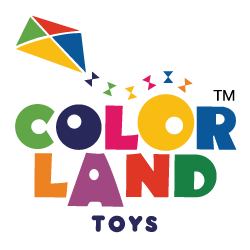Exploring the Effects of Games and Toys on Children's Development

From the earliest stages of childhood, play serves as a gateway to learning, growth, and the development of essential life skills. In this blog post, we delve into the multifaceted impact of games and toys on children’s development, and exploring how these seemingly simple activities contribute to cognitive, social, and emotional development also. In the vibrant scenario of childhood, play weaves the threads of curiosity and joy, laying the foundation for a lifetime of exploration. As we unravel the layers of influence that games and toys exert on young minds, we discover not just the ABCs and 123s but the intricate nuances of resilience, adaptability, and creativity that shape the essence of a well-rounded individual. Join us on this journey as we uncover the profound significance of play in sculpting the minds and hearts of the future generation.
Types of Games and Toys on Children’s Development
- Educational Toys
Educational toys for kids are instrumental catalysts for cognitive development in children. Among these, building blocks stand out as foundational tools that enhance spatial reasoning, shape comprehension, and problem-solving skills. Puzzles, with their diverse shapes and intricate patterns, contribute to fine motor skill development, hand-eye coordination, and critical thinking. STEM (Science, Technology, Engineering, and Mathematics) kits immerse children in hands-on experiences, fostering early interest in these crucial fields. These toys go beyond traditional learning by incorporating interactive elements like lights, sounds, and touch, stimulating multiple senses and enhancing sensory-motor integration.
Moreover, educational toys encourage open-ended play, allowing children the freedom to explore creativity through activities like art and craft. By providing a tangible and concrete introduction to abstract concepts, these toys bridge the gap between theory and practical understanding, making learning enjoyable and approachable. In essence, educational toys serve as more than just sources of entertainment; they shape a child's cognitive landscape, paving the way for a well-rounded and intellectually stimulated young mind.
- Outdoor Games
The great outdoors becomes a playground for physical health and social interaction. Outdoor games like tag, hide-and-seek, trampolines, riding bycycles and sports not only promote physical well-being but also instill crucial social skills as children learn to navigate the dynamics of group play.
Cognitive Development
- Problem-Solving Skills
Games, especially those designed with challenges and puzzles, play a pivotal role in stimulating a child's problem-solving abilities. These activities act as dynamic mental exercises, encouraging kids to navigate through intricate scenarios that require analysis and decision-making. As children immerse themselves in the world of games, they encounter challenges that demand thoughtful strategies and creative solutions. The process of trial and error becomes a valuable teacher, offering insights into boosting IQ among kids. Whether it's deciphering a complex puzzle or strategizing in a board game, children learn to adapt their approach based on outcomes, fostering resilience and flexibility in their cognitive toolkit. These early experiences not only set the stage for effective decision-making in the future but also contribute significantly to enhanced cognitive development, providing a solid foundation for facing challenges with confidence and ingenuity.
- Creativity and Imagination
Toys that encourage open-ended play contribute significantly to the development of creativity and imagination. From pretend play with dolls to building fantastical worlds with construction sets, children learn to think outside the box and express their unique ideas.
Social Development
- Teamwork and Cooperation
Group games teach children the value of teamwork and cooperation. Whether it's strategizing in board games or coordinating movements in team sports, these activities foster a sense of unity and collaboration.
- Communication Skills
Effective communication is a crucial life skill, and certain games and toys contribute to children’sdevelopment. Cooperative games, for example, encourage children to express themselves verbally and non-verbally, honing their communication skills from an early age.
Emotional Development
- Emotional Regulation
Play provides a safe space for children to explore and regulate their emotions. Through various games and toys, they learn to identify and express their feelings, as well as develop strategies for emotional self-control.
- Empathy and Social Skills
Pretend play and toys that involve social scenarios contribute to the development of empathy and social skills. As children navigate various roles and relationships in their imaginative worlds, they gain a deeper understanding of others' perspectives.
Potential Challenges
- Overstimulation and Addiction
While play is crucial, it's essential to address concerns related to overstimulation and addiction, particularly in the digital age. Striking a balance between screen time and other forms of play is key to ensuring a healthy and well-rounded childhood.
In conclusion, the effects of games and toys on children’s development are profound and far-reaching. From honing cognitive abilities and fostering social skills to nurturing emotional intelligence, the transformative power of play cannot be overstated. As parents, educators, and caregivers, let us embrace the role of games and toys in shaping the future generation, providing them with the tools they need to thrive in a complex world. In this endeavor, companies like Colorland Toys play a pivotal role by curating a diverse range of toys that go beyond mere entertainment. We understand the significance of play in a child's development journey and offer a thoughtful selection of toys designed to stimulate learning, creativity, and social interaction. By providing innovative and educational toys, we become an ally in the mission to create a rich and engaging environment for children to explore, learn, and grow. Together, as a community invested in the well-being of our young ones, we can ensure that every playtime moment becomes a stepping stone towards a brighter and more resilient future.






 +971 50 150 4446
+971 50 150 4446